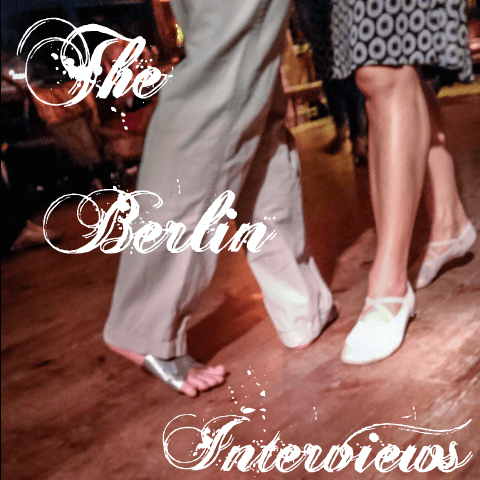I am reluctant to repeat the histories of tango we have received, as Pablo Aslan has warned that there is little evidence for many of them and Sylvia Molloy suggests that the sensationalist fantasies of a rather sheltered Jorge Luis Borges may have been excessively influential. But anthopologist Julie Taylor’s 1998 book, Paper Tangos, inspires this small indulgence.
Buenos Aires at the time of the birth of tango was a place and time suffering many kinds of desperation (and never enough women). The economic result of the immigration rate which delivered 3 immigrants for every native born Porteño was a state of massive insecurity (a condition from which the country has lived in only temporary reprieve). Talent, good looks, and a bright aspect could never insure anyone against this rate of change, this availability of labor and hunger and fresh beauty. To survive, you needed to be more than you were, you needed to pass. And to pass, you needed a perfect facade. You couldn’t betray your origins.
‘Passing’ is a word some of us never have to think about. Will I pass, as a white, as a woman, as a person who can afford this restaurant… as a member of the group who holds power in this war zone, in this border land? Or will I be caught, humiliated, attacked?
There are people who live on the edges and borders of communities, who move back and forth with apparent freedom. There are others who step across in ways that cannot be easily reversed. There are borders that are policed, and others that are open. But there are always consequences for getting caught where you do not belong.
Tangueros carefully assembled impeccable outfits, and pushed their chests assertively into the breasts of elegant, aloof women. How did they dare to reach for her body and heart, where did they get the confidence?
“Be more confident” is a vapid instruction. Just like telling a follower to “be more natural”. I want to slap every man who’s said that to me. If I knew how to move more naturally, I would already be doing it. It’s a non-instruction, which magnifies insecurity without helping me do anything differently. And the correspondingly useless instruction to men is “be more confident”. Be the very thing you know you should be, the thing you beat yourself up about, the thing you want more than anything. Just do that. So you can dance better. Ridiculous.
Men who open their chests and move into my space seem confident. But it probably isn’t true. Everyone is shy and insecure. Everyone, certainly Argentine men as well, were and are posing confidence. “Fake it ‘til you make it”, as the Americans say. So it’s not about being confident, it’s about “faking it”, reprogramming your muscular-skeletal enactment of your insecurity. In truth, changing your posture can change your internal landscape too.
I think a lot about drag queens, partly because they are hot, and partly because I’ve always felt like I was faking femininity too. Drag queens keep up appearances —past others’ disbelief— by brute force of elastic bands, strong tape, heavy makeup, glamorous accessories, and winsome smiles.
So it’s the performance that counts. You drag your self into another reality, propped up with costumes and glue. You may not believe it, but you will convince those who aren’t paying close attention anyway. And as you become more skillful and collect better tools, you will even fool some of those who live to scrutinize. And eventually, the hardest critic, the one with the most information and a perverse penchant for undermining you, yourself.
When you decide you will try to pass, you become your skin, your clothes, the shine in your hair, your hard-won carefully casual accent. The quiver inside is eclipsed by your attention to detail, your concentration as you walk the walk you’ve practiced, speak the words you’ve memorized, smile and turn and touch with a calculated mixture of distance and warmth.
Tango, perhaps, Buenos Aires, perhaps, is drag. Men with empty pockets seduce women with the fullness of their chests.
If you’re interested, I’ve written an essay about Tango gender, desire, and drag.














